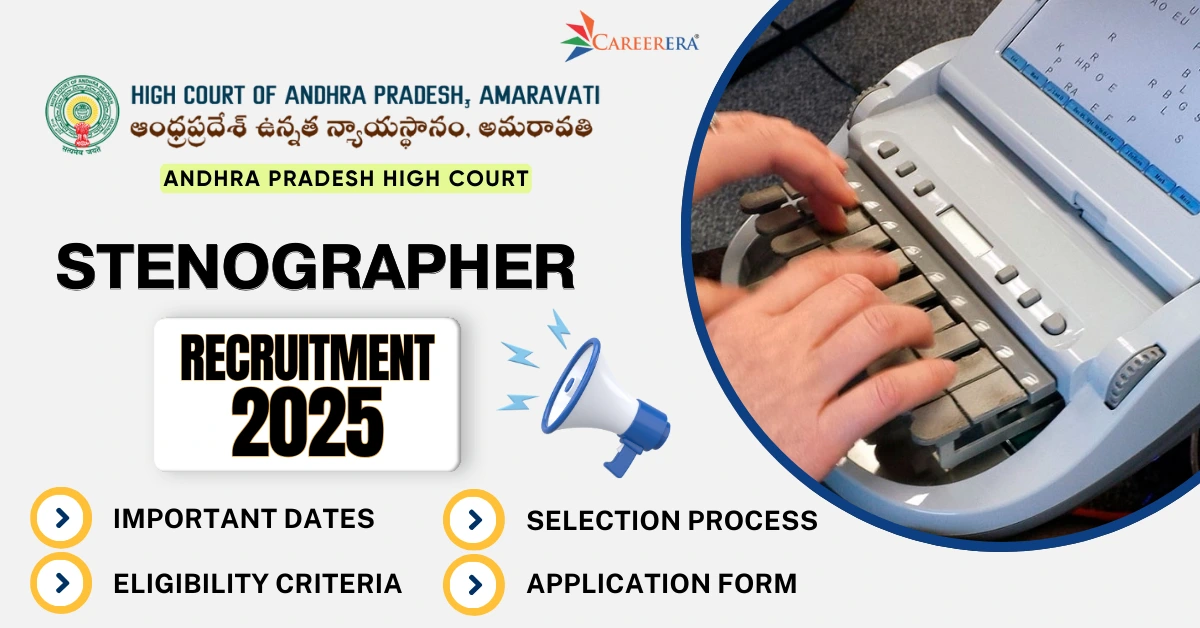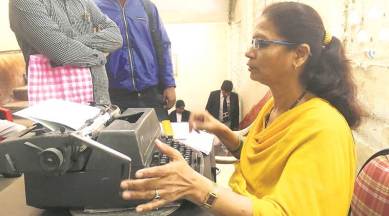Court Typist vs. Stenographer: Understanding the Key Differences
Court Typist vs. Stenographer: Understanding the Key Differences
Blog Article
Exploring the Day-to-Day Tasks of a Court Typist in the Judicial System
As you browse the elaborate globe of the judicial system, you may discover yourself interested concerning the role of a court typist. This placement is greater than just inputting; it includes recording every word talked during proceedings with accuracy. Every day offers unique obstacles and duties that are necessary for maintaining the integrity of lawful records. Understanding what a court typist does can disclose understandings into the more comprehensive operations of justice. What does it require to succeed in this function?
Review of the Court Typist Role
As you step into the function of a court typist, you'll locate it is important to recognize the vital duties included. You'll offer as a vital link in the judicial process, guaranteeing that all talked words throughout court proceedings are accurately recorded and recorded. Your work sustains the stability of the legal system, making your focus to information imperative.You'll operate specific transcription equipment, transforming audio recordings into written transcripts. Knowing with legal terms and court treatments is essential, as you'll often run into complicated language and jargon.You'll also need to keep privacy and take care of delicate information with care. Your role requires you to function efficiently under pressure, frequently with tight target dates, while remaining concentrated on creating clear, specific records. As a court typist, you play an important duty in maintaining the authorities document of court proceedings, contributing considerably to the general performance of the judiciary.

Trick Duties of a Court Typist
While you'll typically be concentrated on catching talked words during court proceedings, your key obligations as a court typist prolong far past transcription. You'll prepare and preserve exact records of court activities, guaranteeing they show every detail of the procedures. You'll also format records, such as lawful briefs and summons, adhering to stringent standards and deadlines.In enhancement, you'll arrange and manage situation documents, making it much easier for judges and lawyers to gain access to vital information promptly. You're expected to check and edit records for clarity and precision, which is important for the stability of legal proceedings.Moreover, you'll work carefully with courts, staffs, and attorneys, keeping open interaction to attend to any kind of demands or discrepancies. Your role is essential in making certain that the judicial process runs smoothly, supplying a reliable created account of what takes place in the court room.
Vital Skills for Court Typists
As a court typist, you require to grasp both inputting rate and precision to stay up to date with the demands of the court room. Familiarity with lawful terms is also crucial, as it assures you accurately record the process. These abilities not just boost your performance however additionally contribute to the total efficiency of the legal procedure.
Keying In Rate and Accuracy
Keying in speed and precision are vital skills that every court typist have to master to assure the integrity and performance of legal paperwork. You need to kind rapidly yet very carefully, as also small mistakes can result in significant misconceptions in legal contexts. A high inputting speed permits you to stay up to date with busy court process, ensuring that every word is captured precisely. Exercising consistently can assist you enhance your speed, while concentrating on accuracy helps lower blunders. Making use of tools like dictation software program or message expanders can additionally increase your performance. Bear in mind, your role is vital in maintaining precise records, so honing these abilities not only benefits you however likewise supports the whole judicial process.
Lawful Terms Efficiency
Understanding lawful terms is vital for court typists to ensure effective and exact documents. You require to familiarize yourself with numerous lawful phrases, jargon, and ideas generally used in court process. This knowledge assists you record recordings and draft files with precision. When you recognize terms like "complainant," "defendant," and "subpoena," you'll lower the chances of mistakes that can jeopardize legal proceedings.Additionally, being skillful in legal terminology improves your confidence while working along with courts, attorneys, and other legal professionals. You'll locate it easier to comply with discussions and properly capture the essence of what's being said. court typist. Constant learning and method will certainly improve your skills, making you an important property in the judicial system
Tools and Technology Used by Court Typists
As a court typist, you count on various tools and modern technology to perform your duties successfully. You'll need important typing devices, user-friendly software program applications, and audio transcription tools to equal the demands of your work. Allow's explore just how each of these parts plays an essential duty in your daily tasks.
Crucial Keying Equipment
While court typists rely greatly on their skills, the best devices is crucial for effectiveness and accuracy. To start with, a high-grade key-board is crucial for quick and exact inputting, allowing you to equal court proceedings. Ergonomic styles can help stop stress during long sessions. A reliable computer with sufficient processing power assurances smooth procedure, especially when handling huge documents (court typist). You'll likewise require a great printer for producing clear duplicates of records. Noise-canceling headphones can be helpful throughout recordings, helping you focus on audio clarity. Additionally, an efficient office and a comfy chair advertise productivity. With the appropriate tools, you can enhance your keying abilities and support the judicial procedure efficiently
Software Applications Utilized
To effectively transcribe court procedures, you'll rely upon a series of specialized software applications developed for accuracy and rate. These programs usually include word processing software, which aids you format records promptly and appropriately. You'll also utilize dig this legal-specific software program that helps in handling case data and preserving records, guaranteeing you can conveniently access important information.Another vital tool is real-time transcription software, allowing you to generate transcripts as the proceedings unravel. In addition, you could make use of record management systems to arrange and get data effortlessly. With these applications, you'll boost your productivity and preserve the high criteria called for in the judicial system, allowing you to focus on your typing abilities and the task available.

Sound Transcription Tools
Court typists typically depend on a variety of audio transcription devices to enhance the precision of their work. These devices assist you convert talked words right into composed additional info message successfully. You could make use of software program like Dragon NaturallySpeaking or Otter.ai, which provide voice recognition capabilities, permitting quick transcription. Furthermore, audio playback tools enable you to listen to recordings continuously, guaranteeing you record every detail appropriately. Some court typists additionally utilize foot pedals, letting you manage audio playback hands-free while you type. This mix of technology not only quickens the transcription procedure but additionally decreases mistakes. Familiarizing on your own with these tools can greatly improve your productivity and the top quality of your transcriptions in the busy judicial environment.
Obstacles Faced by Court Typists
Lots of might view the function of a court typist as uncomplicated, you'll rapidly discover that it comes with a special collection of challenges. One significant hurdle is the rapid rate of court procedures. You'll need to stay up to date with fast discussions, which can be frightening, specifically when multiple speakers are included. Furthermore, the lawful jargon utilized in court can be strange and intricate, requiring you visit this site right here to continuously discover and adapt.Another obstacle is the pressure of tight due dates. You often have to produce transcripts promptly, which can lead to stress and potential mistakes. Furthermore, preserving emphasis for long periods is crucial, as even a brief gap can influence your work.Lastly, managing secret information means you have to always prioritize security and discernment, including another layer of obligation to your role. Stabilizing these challenges comes to be vital for anyone in the placement of a court typist.
The Importance of Precision and Interest to Information
Precision and focus to information are vital for court typists, as even minor blunders can result in significant misunderstandings in lawful proceedings. You're liable for recording court hearings, legal documents, and other necessary details, where every word matters. A straightforward typo or lost spelling might alter the meaning of a declaration, possibly affecting the outcome of a case.When you concentrate on precision, you assist preserve the honesty of the judicial system. Your precise work supports legal representatives, judges, and clients by providing precise and clear documents. Focus to detail likewise decreases the threat of costly hold-ups and assurances that all parties included have access to reputable papers.
Job Course and Opportunities for Court Typists
Grasping accuracy and interest to detail not only enhances your present duty however additionally opens doors to various profession courses for court typists. As you gain experience, you might take into consideration advancing to settings such as lawful assistant or administrative assistant in law practice, where your abilities in transcription and file administration will certainly be invaluable.You can additionally check out opportunities in court coverage, which usually calls for additional training however supplies an opportunity to involve even more directly with court proceedings.If you delight in the management side, positions in instance monitoring or legal study might be an excellent fit.With further education and learning, you may even come to be a paralegal, assisting lawyers with situation preparation.Networking with attorneys can help you reveal covert opportunities.Ultimately, your foundation as a court typist outfits you with skills that are widely appropriate throughout the lawful landscape, paving the way for a fulfilling profession.
Frequently Asked Questions

What Certifications Are Required to End Up Being a Court Typist?
To become a court typist, you'll require solid keying abilities, knowledge of legal terms, and attention to detail. A senior high school diploma is usually needed, and qualifications in transcription can boost your certifications.
How Does a Court Typist Manage Confidential Information?
You deal with private details by following strict procedures, making use of protected systems, and preserving discretion. You're educated to identify sensitive information and assure it's stored and shared just with licensed personnel, shielding the integrity of the info.
What Is the Regular Workplace for Court Typists?
You'll usually locate court typists in a formal workplace setting, often surrounded by legal specialists. The setting's usually peaceful, concentrated, and structured, enabling you to focus on transcribing and handling sensitive papers efficiently.
Are Court Typists Required to Take Dictation Throughout Trials?
Yes, court typists commonly take dictation during trials. You'll require to pay attention very carefully, recording lawful procedures accurately and efficiently. Your emphasis and rate will certainly guarantee that every detail is captured for official documents.
How Do Court Typists Handle Target Dates Throughout Busy Periods?
Throughout active periods, you focus on tasks by organizing your workload and using effective keying techniques. You set realistic due dates, connect with colleagues, and remain focused to ensure all files are completed accurately and on schedule. While you'll frequently be concentrated on catching talked words during court procedures, your vital responsibilities as a court typist prolong much past transcription. Typing rate and accuracy are essential abilities that every court typist should understand to assure the stability and efficiency of legal paperwork. Grasping legal terminology is crucial for court typists to guarantee reliable and precise documentation. Accuracy and interest to detail are important for court typists, as even small blunders can lead to considerable misunderstandings in lawful proceedings. court typist. To come to be a court typist, you'll need solid keying skills, expertise of legal terminology, and attention to information
Report this page